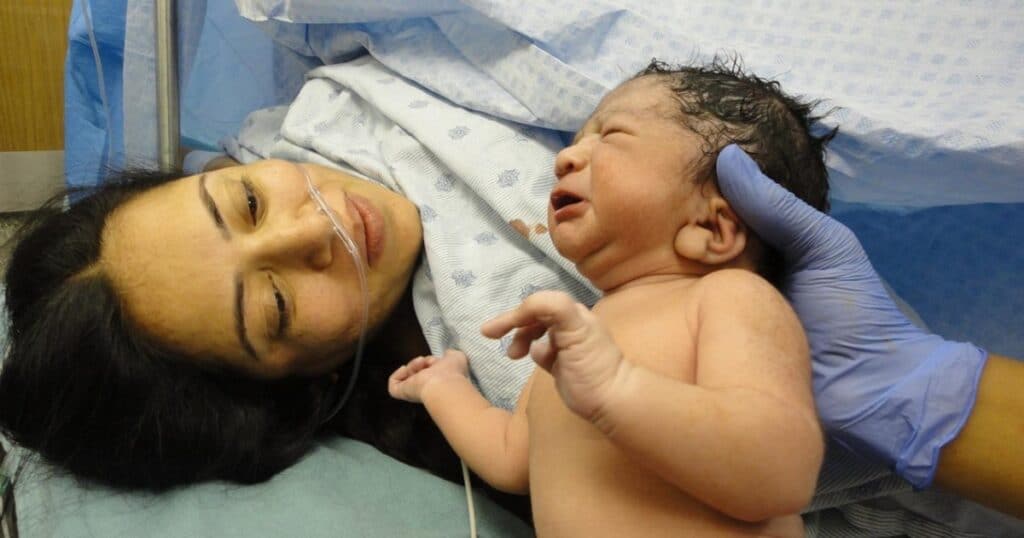
May 24, 2022
A birth injury occurs when an infant is injured during the birthing process. Illness, difficult labor, or medical malpractice can all result in these injuries. Some birth injuries are temporary and heal quickly, while others are physically and neurologically debilitating and can last a lifetime. Birth injuries to the neck and brain are especially serious and can result in serious conditions such as cerebral palsy or brain damage.
Causes Of Birth Injury Explained
A birth injury is categorized as an injury to an infant before, during, or immediately following the birthing process. Birth injuries can be temporary, with symptoms lasting a few days to a few weeks. They may, however, be permanent, with severe symptoms lasting the child’s entire life.
The type and scope of the problem are determined by the conditions and factors that led to the birth injury. Maternal conditions, infant conditions, and external factors can all contribute to birth injuries of varying severity.
For example, depriving an infant of oxygen immediately before birth can result in brain damage. Infants who suffer brain damage during the birthing process are much more likely to develop lifelong neurological problems.
On the other hand, a physician pulling on a child’s neck to quicken delivery can damage the nerves that control the shoulder or arm, resulting in Erb’s palsy. Infants diagnosed with Erb’s palsy after birth have a good prognosis because more than 80% of patients recover completely and regain complete control of their affected arm.
Conditions that Can Cause Birth Injury
A birth injury can be caused by a variety of conditions. Women and infants who have these conditions during any stage of the birthing process may be at greater risk.
Understanding the maternal, infant, and external conditions associated with a higher risk of birth injury is critical for identifying and avoiding them.
Maternal Conditions
The mother’s pelvis may have the wrong shape or size for a safe delivery: If the mother’s pelvis shape is not conducive to an easy birth, the child may struggle or twist in a way that reduces their oxygen flow.
Difficult labor or delivery (dystocia): Difficult labor can be caused by an awkwardly positioned fetus or a cervix that does not usually expand. Either of these conditions can be difficult for the child and result in a birth injury.
Prolonged labor: Prolonged labor is associated with an increased risk of birth injuries.
Infant Conditions
Babies that weigh over 8 pounds and 13 ounces: Heavier infants have a more difficult birthing experience and are more susceptible to birth injuries.
Babies born before the 37th week of pregnancy (prematurity): Premature births have a higher rate of birth injuries because the child’s muscles and nervous system are not fully developed.
Abnormal fetal position at birth: Infants born in an abnormal position, such as head-up, buttocks-first, or breech, are more likely to sustain a birth injury.
External Conditions
Physical injury to a child during delivery: Physical injuries during childbirth can result in serious birth injuries. These injuries can occur during delivery if a doctor uses forceps or the vacuum extraction method.
Types of Birth Injury Causes
There are various types of birth injury causes. These causes are typically classified into four categories: delayed birth, oxygen deprivation, medical malpractice, and other causes. Each cause is distinct and can result in injuries with a variety of symptoms.
Delayed Birth
One of the common causes of birth injuries is delayed birth. A delayed birth occurs when labor lasts more than 18 hours—pressure on the infant’s brain increases during a delayed birth. Fetal distress and high blood pressure can result from the compression. In addition, high blood pressure during childbirth can result in a stroke or other cardiovascular problems.
Oxygen Deprivation
Oxygen deprivation is a serious issue that can result in a variety of injuries in newborn infants. A prolapsed umbilical cord or lungs that have not fully developed, such as those in a prematurely born infant, can cause oxygen deprivation. The majority of birth-related brain injuries are caused by oxygen deprivation during labor. The most severe brain injuries can have a lifetime impact.
Medical Malpractice
A doctor’s excessive use of force or medical negligence during delivery can result in a birth injury. Medical professionals are trained to understand the birthing process and the risks to be aware of. However, inexperienced staff or impatient doctors can misread data or even cause blunt force trauma.
For example, forceps and vacuum extractors can damage the child’s brain during delivery. Negligent staff may fail to properly monitor an expectant mother, missing issues such as low oxygen flow to the fetal brain.
Other Causes
There are several other possible causes from which birth injuries occur. For example, if the child’s body is manipulated incorrectly during delivery, it can cause difficulty leaving the birth canal and oxygen deprivation. Certain medications, as well as viral or bacterial infections in the mother or infant during pregnancy, can also cause birth complications.
Get The Help of a Birth Injury Lawyer!
Your child is precious. You have spent nine months anticipating your child’s birth and possibly many years longer preparing to have a child, but childbirth has always been a dangerous event, even if you make the healthiest choices during your pregnancy. Unfortunately, birth injury medical malpractice claims are extremely common – and winning these cases can be difficult. That is why you require the assistance of a birth injury lawyer.
Lawyers pay close attention to the doctors and nurses who assist in the delivery of your child. However, sometimes the cause of a birth injury is negligence regarding standard childbirth care – in other words, physicians may overlook basic safety precautions for mother and child, resulting in the birth injury.
If you or a member of your family has been the victim of negligent or irresponsible medical care during childbirth, we at Khashan Law Firm are here to help. We will be able to fight on your behalf and obtain financial compensation. We also have an excellent network of leading medical experts who can help with the child’s recovery and treatment.




